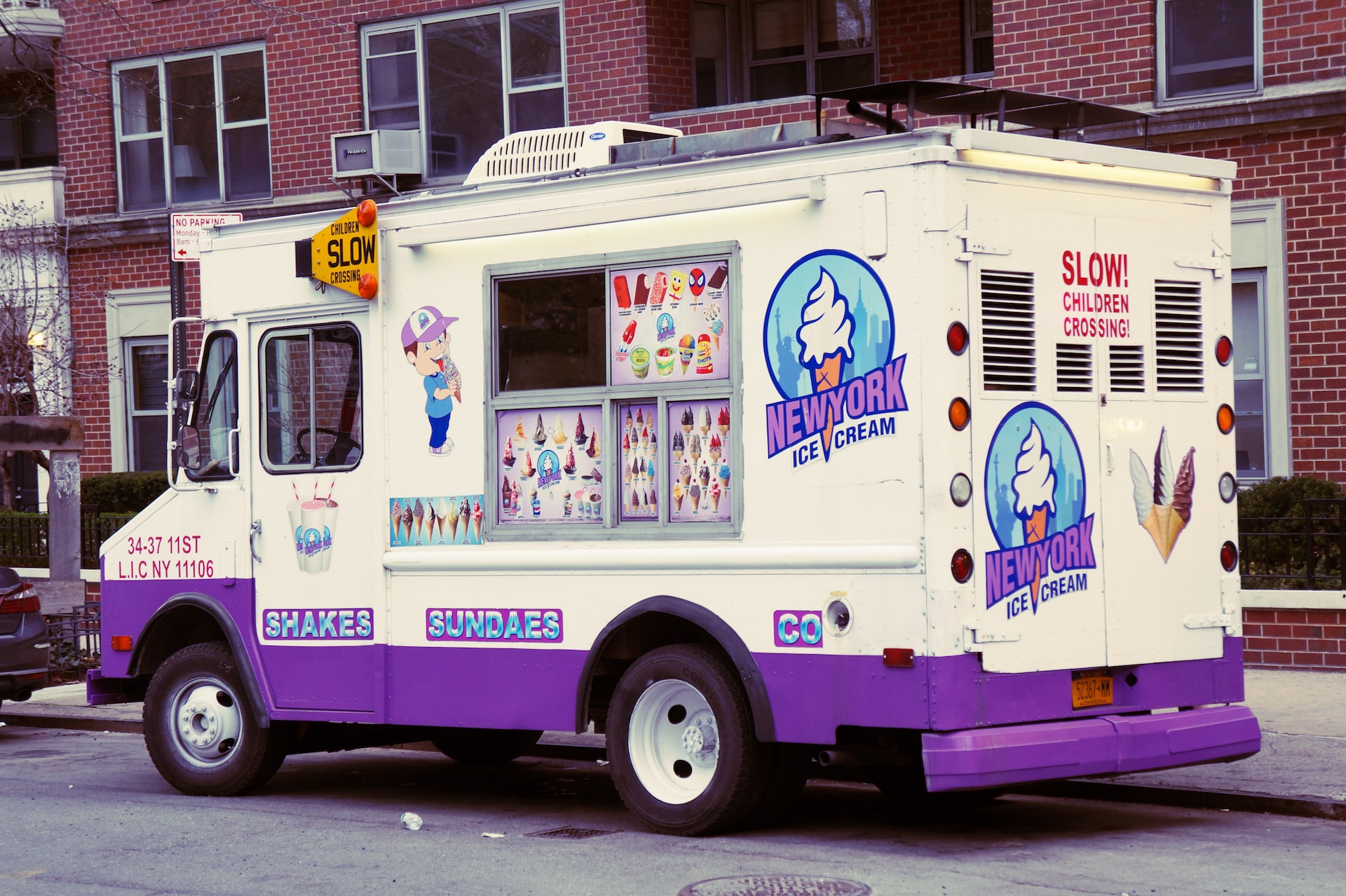For trucking companies, having a sufficient number of trucks in their fleet is essential to meet customer demands and stay competitive in the market. However, expanding operations by adding more trucks can be a costly endeavor, especially for small to medium-sized businesses.
This is where commercial truck loans come in, providing a viable financing option for acquiring new trucks without having to pay the full price upfront. With the ability to spread payments over several years, commercial truck loans can make it more manageable for businesses to expand their fleets and serve new clients. In this article, we’ll take a closer look at the commercial truck loan process, including the types of loans available, the requirements for approval, and tips for saving on commercial truck financing.
Whether you’re a new trucking business looking to grow your fleet or an established company seeking to upgrade your trucks, this guide will help you navigate the world of commercial truck loans and make informed decisions about your financing options.
How Do Commercial Truck Loans Work?
Some fleet managers have enough resources, but they can spread the capital across several loans to get more trucks with the same money. This is where commercial fleet financing comes in. Most lenders will ask for a down payment and provide enough financing to cover the difference. This means that you don’t have to pay the full cost of the truck upfront, but rather, you can spread the payments over a period of time.
When you take out a commercial loan, lenders use your truck as collateral. This means that if you fall behind on loan payments, they can take the truck to recoup their losses. However, lenders will make the best possible effort to avoid this scenario and work with you to ensure payment. They may offer you the option to refinance the loan or adjust the payment terms to make it more manageable for you.
Lenders will charge interest for letting you use their money. The interest rate provides lenders with a profit for incurring the risk of handing out their money. The interest rate you are charged will depend on a variety of factors, including your credit score, the amount of the loan, and the length of the loan term. You can select a short loan term to pay less interest but make higher loan payments each month. Alternatively, a longer loan term decreases your monthly payments but results in more interest in the long term.
There are several types of commercial loans available, each with its own unique features and benefits. The most common types of commercial loans include term loans, lines of credit, and equipment financing. Term loans are a type of loan where you receive a lump sum of money upfront and repay it over a set period of time. Lines of credit are revolving credit lines that allow you to borrow up to a certain amount of money whenever you need it. Equipment financing is a type of loan specifically designed for purchasing equipment for your business.
When choosing a commercial loan, it’s important to consider your business’s needs and financial situation. You should evaluate how much money you need, how long you need it for, and what type of repayment terms you can afford.
Should You Get a Lease or Loan for Your Commercial Truck?
When it comes to financing your commercial truck, you have two primary options: leasing or taking out a loan. Both options have their pros and cons, and the decision ultimately depends on your specific needs and circumstances.
Leasing a commercial truck is essentially renting it for a set period of time, typically two to five years. During this time, you make monthly payments to the lessor, who owns the truck. At the end of the lease term, you can either return the truck or purchase it for a predetermined price.
One of the main advantages of leasing is that it allows you to get a new truck without having to pay the full purchase price upfront. This can be particularly beneficial if you’re just starting out and don’t have a lot of capital to invest in your business. Additionally, leasing can provide tax benefits, as the monthly payments are typically tax-deductible.
However, leasing also has some drawbacks. For one, you don’t own the truck, which means you can’t make modifications to it or sell it if you no longer need it. Additionally, leasing can be more expensive in the long run, as you’ll be making payments indefinitely if you continue to lease trucks. Finally, leasing can come with strict mileage and maintenance requirements, which can be difficult to meet if you’re using the truck for heavy-duty work.
By contrast, taking out a semi truck loan means that you own the truck outright from the beginning. You make monthly payments to the lender, who holds a lien on the truck until the loan is paid off. Once the loan is fully paid, you own the truck free and clear.
One of the main advantages of taking out a loan is that you own the truck, which means you can make modifications to it or sell it if you no longer need it. Additionally, taking out a loan can be more cost-effective in the long run, as you’ll eventually pay off the loan and no longer have monthly payments. Finally, taking out a loan can provide more flexibility, as you’re not bound by mileage or maintenance requirements.
However, taking out a loan also has some drawbacks. For one, it can be more expensive upfront, as you’ll need to make a down payment and pay interest on the loan. Additionally, taking out a loan can be more difficult if you have poor credit or limited financial resources. Finally, taking out a loan can come with more paperwork and administrative tasks.
Getting Commercial Truck Loans from Traditional Banks vs. Alternative Lending Partners
Traditional banks are a popular choice for commercial truck loans, as they typically offer lower interest rates and longer repayment terms than alternative lenders. Additionally, traditional banks are often more established and have a reputation for being trustworthy and reliable.
However, traditional banks also have more stringent requirements when it comes to credit scores, financials, and other essentials. This can make it difficult for newer or smaller trucking companies to qualify for a loan to finance a semi-truck. Additionally, traditional banks can take a while to provide you with a loan, which can be problematic if you need to purchase a truck quickly.
Alternative lending partners, on the other hand, can be a good option for trucking companies that don’t meet the strict requirements of traditional banks. Alternative lenders often have more flexible lending criteria, which means that they may be willing to work with you even if you have bad credit or limited financial resources.
Additionally, alternative lenders can provide funding more quickly than traditional banks, which can be beneficial if you need to purchase a truck quickly. Some alternative lenders can provide funding within a matter of days, while traditional banks can take weeks or even months to approve a loan.
However, alternative lenders also tend to charge higher interest rates than traditional banks, which can make the loan more expensive in the long run. Additionally, alternative lenders may have more restrictive repayment terms or require collateral for the loan.
When choosing between traditional banks and alternative lenders for your commercial truck loan, it’s important to consider your specific needs and circumstances. If you have strong credit and financials and you’re willing to wait for loan approval, a traditional bank may be the best option for you. However, if you have bad credit or limited financial resources and you need funding quickly, an alternative lender may be a better choice.
Financing Your Commercial Truck Loans
Loans help you finance a commercial truck loan, but you don’t want to turn a great financial product into a burden. We’ll discuss some factors to consider when getting a commercial truck loan so you can get approved and comfortably make loan payments.
Determine The Type of Truck You Need
- Type Of Truck: Some trucks cost more than others. You’ll have to get more financing for a Freightliner than a Ford L9000. You might already have a commercial truck in mind, but if not, review several options before applying for a loan. You don’t want to end up with insufficient financing because the truck you want is high-end.
- New vs. Used: New trucks can get you more mileage, but they also cost more. Some truck fleets can settle with used trucks and save money with these vehicles. Interest rates are higher for used vehicles, but you’ll pay less for the truck.
- Age and Mileage: The age and mileage of any truck impact its value. You’ll have to pay more attention to these metrics for used vehicles. Some truck owners take great care of their commercial trucks, while other trucks don’t have much time. Compare rates across used trucks to understand how much you should offer for a truck based on its age and mileage.
Review Your Credit Score
Lenders will look at your credit score to see if you qualify for a loan. Even if you fulfill the minimum credit score requirements, a credit score remains pivotal for loan repayment. A higher credit score helps you access higher loan amounts and lower interest rates. Lenders see high-credit borrowers as low risk, and they’ll incentivize you with lower rates.
Prepare Paperwork and Other Requirements
Lenders will ask for paperwork and documents during the application process. You should check each lender’s requirements. While most of them follow the same rubric, some lenders may ask for additional documents. You should assemble paperwork and documentation for the following:
- Tax Returns and Bank Statements: Some lenders may want to see one year of tax returns and bank statements, while others may want 2-3 years of information.
- Business and Personal Financial Documents: These documents have similar requirements as tax returns and bank statements.
- Commercial Driver’s License: Lenders want to make sure you or a co-worker can legally operate the vehicle before giving you money.
- Truck Insurance: You must have insurance to register a truck.
- Down Payment/Collateral: Some lenders require a minimum down payment. Ensure you have enough funds for a down payment before applying for a business loan. You will likely have to provide the truck as collateral. Loans that come with collateral requirements generally have lower interest rates than unsecured loans.
Choose Your Lender and Compare Available Loan Rates and Terms
Truck companies can choose from many lenders. You want the best deal for your loan. It’s never good to rely on a single lender. Instead, you should shop around and see which rates and terms work best for your budget and preferences.
Submit Your Application
Narrow your list and submit applications to your favorite lenders. Assembling the paperwork and documents once makes it easier to submit multiple applications. While more applications lead to more choices, you don’t want to trigger too many hard credit inquiries.







